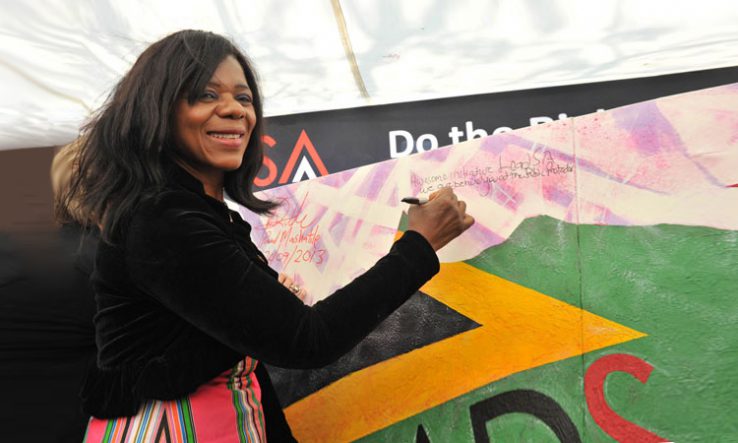
Image: GovernmentZA [CC BY-ND 2.0], via Flickr
Advice from medical experts ‘has clearly not been enough’, says former public protector
South Africa’s response to the Covid-19 pandemic draws insufficiently on social science experts like economists, lawyers and educators, according to former public protector Thuli Mandonsela.
Writing in the South African Journal of Science this week, Mandonsela, who holds a chair in social justice at Stellenbosch University, warns that a lack of attention to the unexpected consequences of pandemic responses, such as the lockdown,“has likely exacerbated poverty, inequality, mental health challenges, family dysfunctionality, and social vulnerability”.
There is “no gainsaying” that the Covid-19 regulations have saved lives, she writes. But seeking advice from pandemic experts and doctors “has clearly not been enough,” she adds, recommending the establishment of a multidisciplinary Covid-19 advisory forum that embraces lawyers, educators, sociologists, psychologists, social workers, statisticians, economists, and development experts.
The government also does not appear to have consistently used its own impact assessment tool, the Social and Economic Impact Assessment Systems, before approving regulations, she notes: “Anecdotal information suggests that the opinions of outside experts, including lawyers, are sought now and then by individual ministers and the ministry.”
This incoherence and “impact unconsciousness” results in unintended consequences when policies don’t join up. For example, “the impact of closing early child development centres and schools on child nutrition was never detected until the problem of hunger for children became real,” she notes. The same applies to the inequality in access to education laid bare when teaching migrated to virtual platforms, she adds.
“The impact will be felt in historically disadvantaged communities long after Covid-19,” she writes.